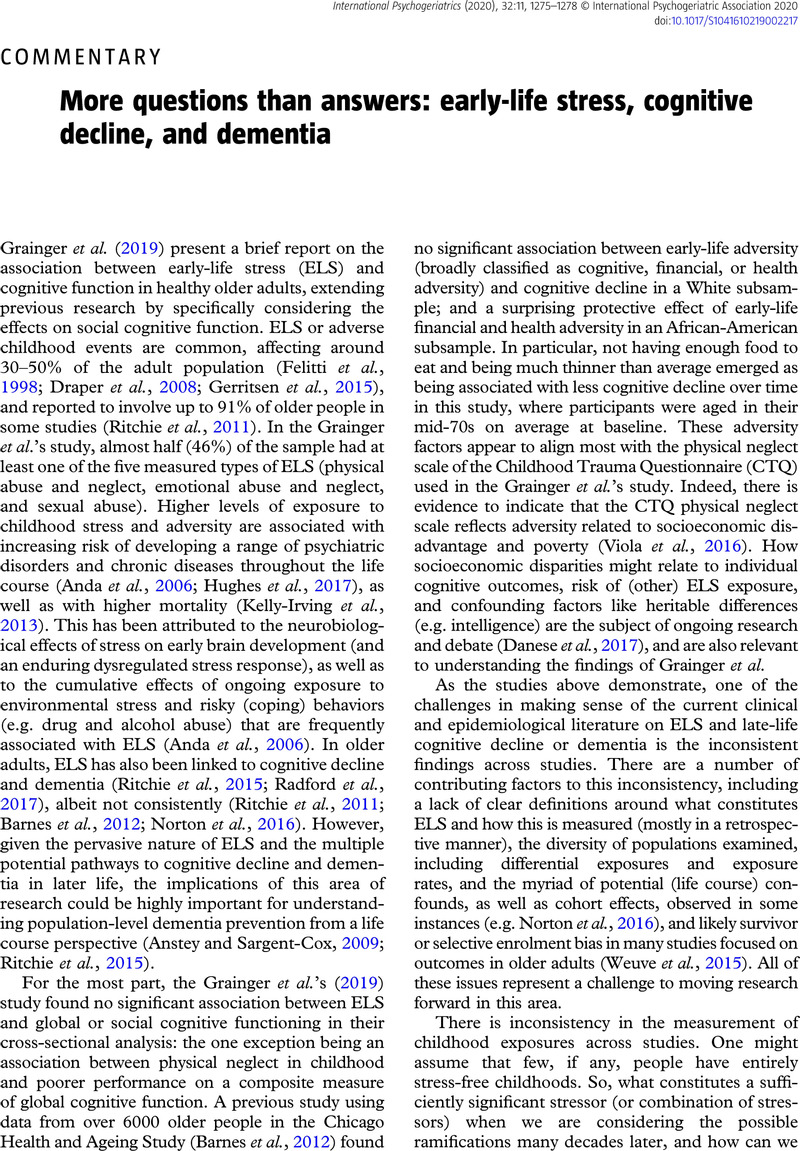Crossref Citations
This article has been cited by the following publications. This list is generated based on data provided by Crossref.
Baiden, Philip
Cassidy, Jessica
Panisch, Lisa S.
LaBrenz, Catherine A.
and
Onyeaka, Henry K.
2022.
Association of adverse childhood experiences with subjective cognitive decline in adulthood: Findings from a population-based study.
Aging & Mental Health,
Vol. 26,
Issue. 11,
p.
2214.
Xavier Hall, Casey D.
Okantey, Beth
Meng, Zhuo
Sabuncu, Crim
Lane, Brittany
Millender, Eugenia
Queiroz, Artur
Kim, Jung Hyo
Okada, Lorie
Gillespie, Avrum
Simoncini, Gina
Barile, John ‘Jack’ P.
Ma, Grace X.
and
Wong, Frank ‘Frankie’ Y.
2024.
Examining biopsychosocial predictors of risk for cognitive impairment among a racially diverse sample of men who have sex with men living with HIV.
Therapeutic Advances in Infectious Disease,
Vol. 11,
Issue. ,



